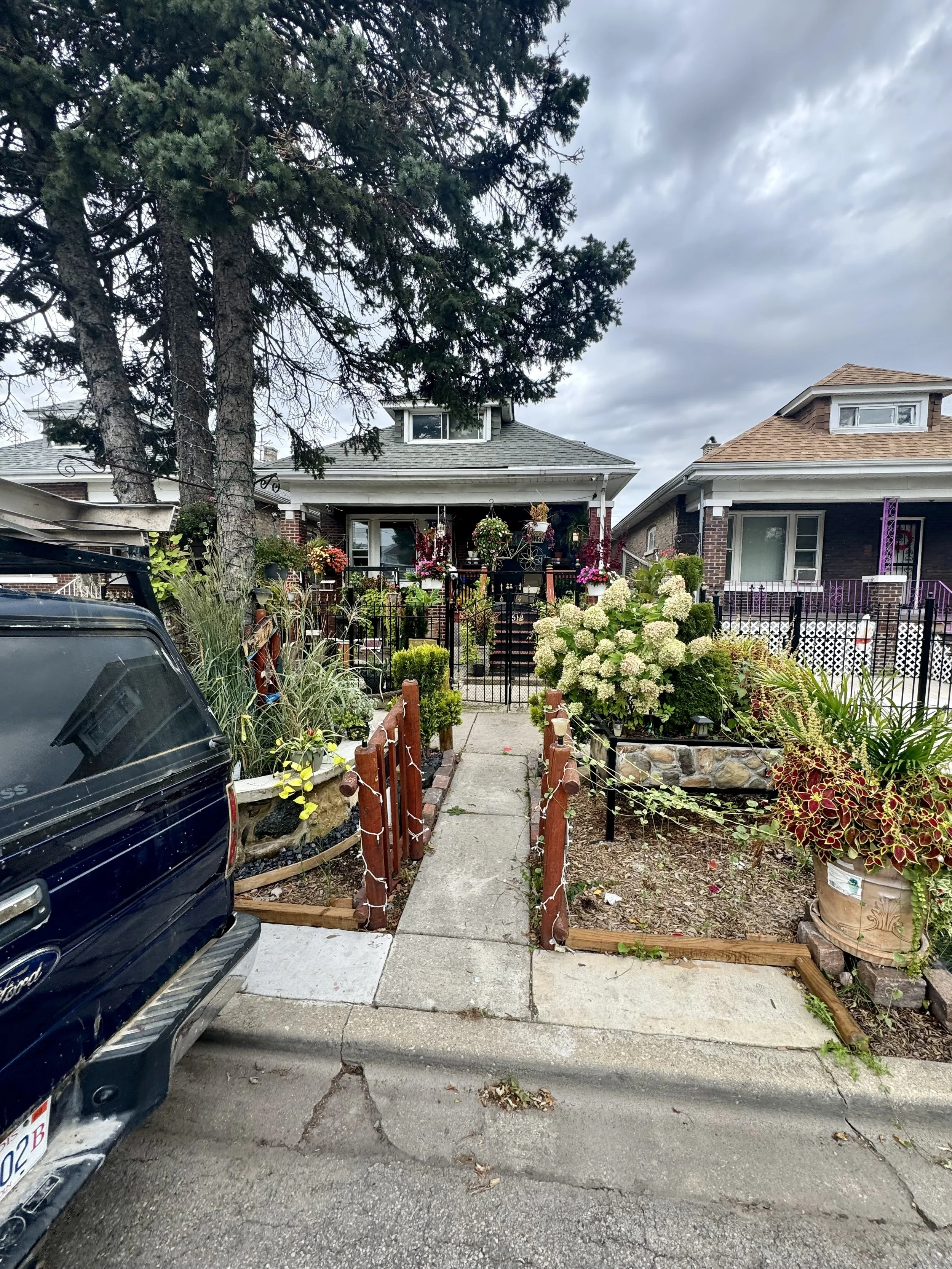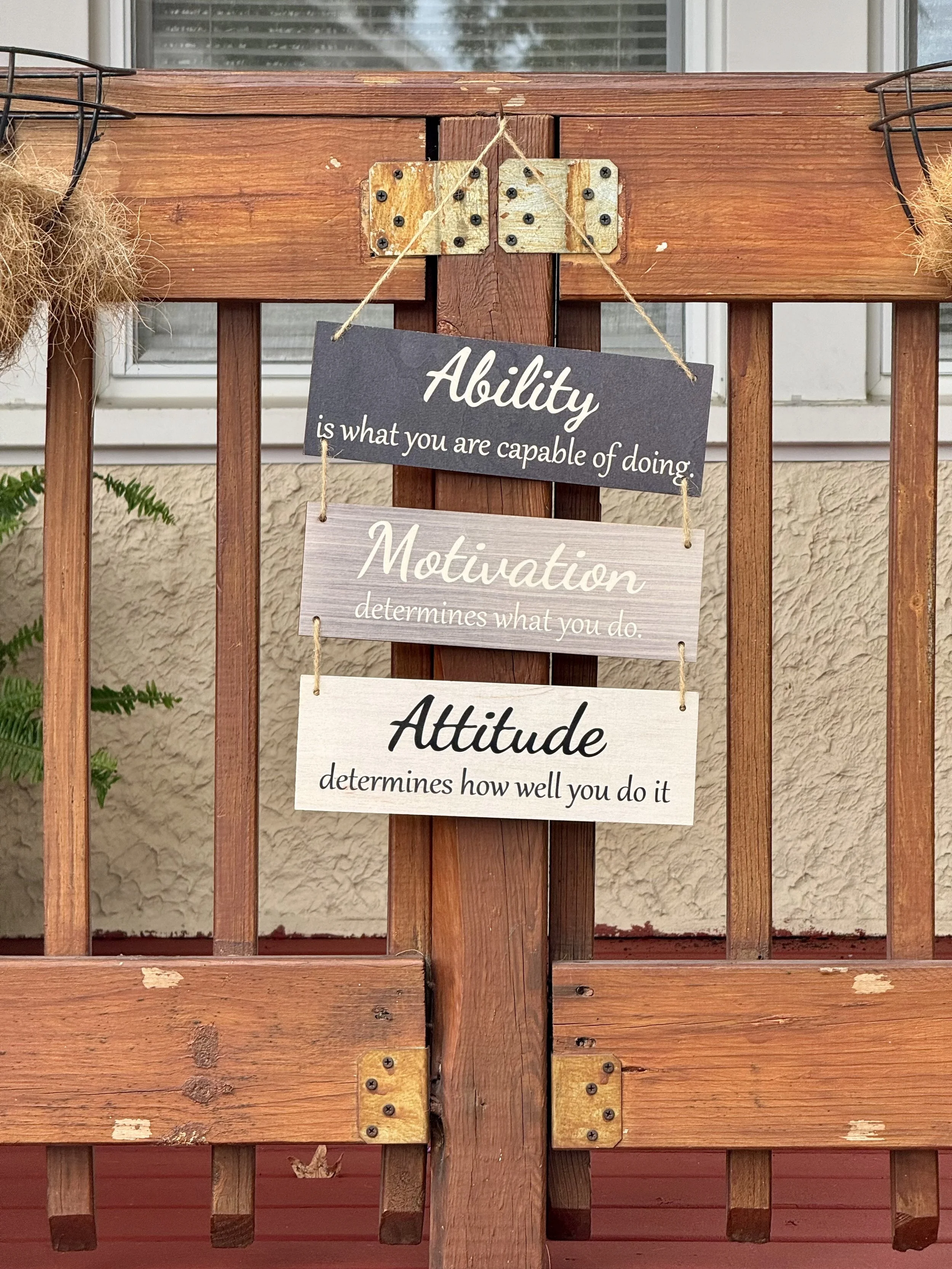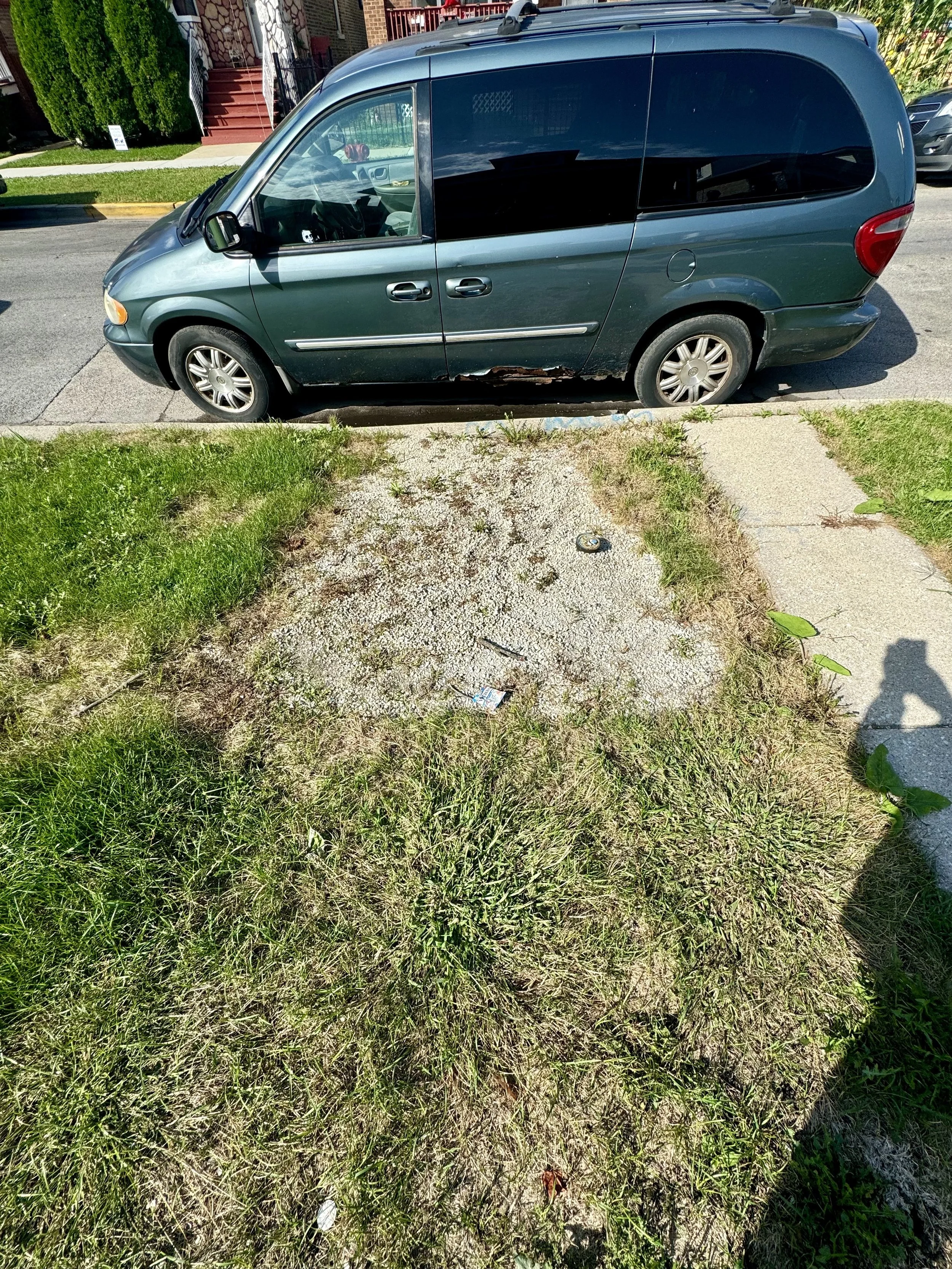Block 10: “Over Promising”
Block 10: “Over Promising”
As I rode through Englewood on my way to meet Mrs. Linda Thomas, I noticed a lot of old block club signs. Mrs. Thomas has been a Block Captain at 65th and Mozart for as long as I can remember. She also runs a daycare out of her home—a daycare she’s been running for generations. Now, she’s caring for the kids and grandkids of the kids she used to watch. I wonder if she notices similarities or traits in these children that remind her of their parents or even their grandparents—qualities passed down through generations. It makes me wonder if there are traits in my lineage that have been passed down to me.
Recently, I had a visit from some employees at Ancestry.com. Twenty-five people came from Los Angeles to film a commercial about my dad and me. As part of the campaign, I took a DNA test that traced my lineage all the way back to Africa. Taking the test gave me a deep sense of confidence, but it was about more than that—it was about identity.
A lot of my family records have been lost or destroyed over the years, but I can trace my ancestry to Waco, Texas, as far back as 1891, when my great-grandfather was born. His name was Lank Harrison Cole, though they called him Papa Lank. He and I share the same birthday. Papa Lank was a light-skinned house boy, and supposedly his masters taught him math. He was married to Julia Ann Thomas Cole, known as Mama Coo. They had three sons: one became a reverend, another joined the military, and the third was the first Black police officer in Houston.
My great-uncle Thomas worked foot patrol in a mostly Black neighborhood. Because Black officers weren’t allowed to drive squad cars, he had to ride the bus. If he arrested someone, they’d ride the bus together back to the station. Story goes, Uncle Thomas was once reprimanded for talking to a White meter maid who’d asked for his assistance and protection from cat-callers. He was docked a day’s pay and pressured to resign, which he refused. That incident ended up being the only blemish on his record in 63 years on the force. I like to think I get my spirit for activism from him.
When I arrived at 65th and Mozart, Mrs. Thomas was standing on her porch waiting for me. She opened the door and invited me inside, making her the first Block Club Captain to do so. Her home is beautiful.
Mrs. Thomas and some other local leaders had a lot of requests. Cars on the block were being burglarized, and they could use cameras—but who would monitor the footage? The 65th and Mozart Block Club sign had been taken down after the Latin Kings spray-painted their black and yellow crown tags all over it. They needed help filing for their 501(c)(3) status so they could apply for grants. They also needed t-shirts for club members, school supplies for kids, welcome baskets for new residents, grocery delivery for seniors, and an organized patrol for when kids return home from school.
After talking with Mrs. Thomas and the other leaders for about thirty minutes, I started worrying that I might walk away over-promising. I’m trying my best to follow through on my commitments. For me, maturity means keeping it real with Block Club Captains. I don’t want to be just another person who shows up, makes promises, and never delivers. I could think of these visits as a sort of “listening tour,” but that’s not actionable enough for me. I want to address their needs in real-time, even though I don’t have “real-time” funding. I won’t stop trying to deliver—it just might take some time.
As I was leaving, I said goodbye to Mrs. Thomas and thanked her for her hospitality. A few neighbors wanted to show me some issues on the block, so we walked south on Mozart to a patch of rough sidewalk. The water company had dug up a pipe but never re-laid the concrete. The neighbors could go through the city to get it fixed, but they knew we’d respond faster.
This block has a lot of needs, but none of the requests are unreasonable. What weighs on me is knowing my nonprofit has a limited budget for this type of work, even though these issues aren’t out of the ordinary. There’s always funding to plant tulips and lilies downtown for beautification, but nothing for painting porches on 65th and Mozart. A chain is only as strong as its weakest link, and Chicago is only as strong as its most under-resourced community.
I know I probably sound like a broken record, but block clubs are a great solution to many of this city’s issues. The more connected you are, the safer, healthier, and happier you are. We know this intuitively. Establishing a block club that lasts generations—much like knowing your ancestry or caring for the kids of your kids’ kids—can ground you in the security and warmth of true community.



